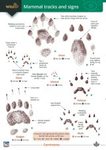![Mammals: A Very Short Introduction Mammals: A Very Short Introduction]()
Click to have a closer look
About this book
Contents
Customer reviews
Biography
Related titles
About this book
From a modest beginning in the form of a little shrew-like, nocturnal, insect eating ancestor that lived 200 million years ago, mammals evolved into the huge variety of different kinds of animals we see today. Many species are still small, and follow the lifestyle of the ancestor, but others have adapted to become large grazers and browsers, like the antelopes, cattle, rhinos, and elephants, or the lions, hyaenas, and wolves that prey upon them. Yet others evolved to be specialist termite eaters able to dig into the hardest mounds, or tunnel creating burrowers, and a few took to the skies as gliders and the bats. Many live partly in the water, such as otters, beavers, and hippos, while whales and dugongs remain permanently in the seas, incapable of ever emerging onto land.
In this Very Short Introduction Tom Kemp explains how it is a tenfold increase in metabolic rate – endothermy or "warm-bloodedness" – that lies behind the high levels of activity, and the relatively huge brain associated with complex, adaptable behaviour that epitomizes mammals. He describes the remarkable fossil record, revealing how and when the mammals gained their characteristics, and the tortuous course of their subsequent evolution, during which many bizarre forms such as sabre-toothed cats, and 30-tonne, 6-m high browsers arose and disappeared. Describing the wonderful adaptations that mammals evolved to suit their varied modes of life, he also looks at those of the mainly arboreal primates that culminated ultimately in Homo sapiens.
Contents
1: What is a mammal?
2: The origin of mammals
3: The radiation of mammals
4: Carnivorous mammals
5: Herbivorous mammals
6: Diggers and burrowers
7: Aquatic mammals
8: Flying mammals
9: Primates
10: Humans and mammals: the past and the future
References
Further Reading
Index
Customer Reviews
Biography
Dr. Tom Kemp is Emeritus Research Fellow at St John's College, Oxford, and a widely respected expert on the evolution of mammals. He is the author of several books widely used by students, including The Origin and Evolution of Mammals (2005), and The Origin of Higher Taxa (2015).





























![How to Find and Identify Mammals [Revised Edition]](http://mediacdn.nhbs.com/jackets/jackets_resizer_medium/21/210208.jpg?height=150&width=106)

















